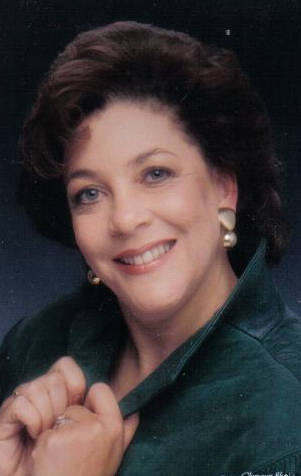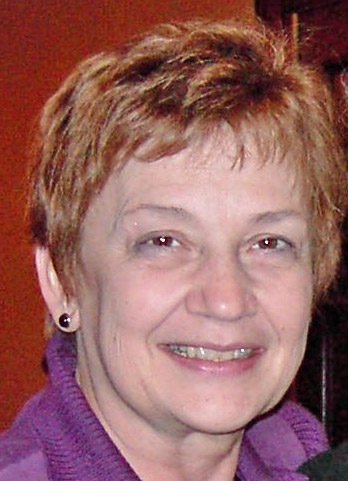Thursday, January 22, 2009
The New Normal: Obama and Other Third Culture Kids Using The Gifts of Their Global Childhoods
The New Normal : Obama and Other Third Culture Kids Using The Gifts of Their Global Childhoods
Pundits throughout the presidential campaign struggled to define President-elect Barack Obama by traditional measurements of race or ethnicity. They wondered if his vision for "no blue States, no red States, but the United States of America " was possible. Could any nation move beyond its political or racial divisions to some sort of unified whole?
While the debates on talk shows on these issues seemed endless, they missed one basic reality about Barack Obama: he grew up as a third culture kid (TCK) -- a child who spends a significant period of his or her developmental years outside the parent(s)' passport culture. The themes Obama describes in his autobiographies – his search for identity, his wondering where he belongs in the traditional slots – are common concerns for the countless children being raised among different cultures in today’s society – not just TCKs, but what we now call Cross Culture Kids (CCKs) as well – children of immigrants, biracial or international adoptees, and more.
The gifts of the TCK and CCK experience are great in number and depth – a broad world view, the ability to be a cultural bridge, linguistic skills, and a sense of confidence to think "outside the box" are well documented benefits of this background.
In this webinar we will explore how this "new normal" -- the reality that fewer and fewer children grow up in traditional mono-cultural environments – presents new opportunities for our globalizing world. We will look at the common benefits and challenges such a childhood brings. And we will consider both how to recognize and use the gifts so many adult TCKs bring with them to the workplace, to the community, or to their governments.
Whether you are a TCK yourself, or are interested in how to leverage others’ TCK skills in the service of improved understanding, communication, and effectiveness, please join us for a fascinating, interactive discussion.
Date: Jan. 29th, 2009
Time: 7:30 AM Eastern,
12:00 Noon Eastern,
OR
5:00 PM Eastern
To register, please email Laura Thielges on or before January 28 at lthielges@girlscouts.org and indicate which timeslot you’d like to participate in. You will then be sent an email with instructions for attending the webinar. Participation is limited to the first 100 people who respond.
Girl Scouts of the USA has recently released some interesting research on the affects of the recent election on girls and youth. See more from the Girl Scout Research Institute here:
http://www.girlscouts.org/news/news_releases/2009/elections_impact.asp
Friday, January 4, 2008
TCKs, Hidden Diversity and the New Normals
For example, I have discovered while traveling the globe to speak on issues related to Third Culture Kids (TCKs) that many in my audience will come up and say "I relate completely to the profile you describe for TCKs, but I never grew up the way my [child, student, employee] is (or did). Am I allowed to apply some of these things to my own life?"
On further exploring the stories of those who feel so connected to the issues of those who have clearly grown up among many cultures with high mobility taking them back and forth between these different cultural worlds, we began to see larger patterns emerge. Some of those sharing their stories had grown up in the former Eastern bloc countries. When the "Iron Curtain" fell, the cultural worlds in which they lived changed dramatically. No longer were they living in the traditional cultural patterns their parents had known. They hadn't physically moved to a new culture, but a new world had come to them. For international adoptees, for those raised in bi-cultural homes, many of the same issues of "Which of my many cultural selves am I?" that TCKs have often faced were theirs as well.
As we wanted to enlarge our discussions to include this growing group of those who have grown up and/or lived among this multiplicy of cultural worlds for all sorts of reasons, we started with one simple, obvious place.
Years ago, the late Dave Pollock (my co-author Third Culture Kids: The Experience of Growing Up Among Worlds) and Norma McCaig (originator of the term, Global Nomads) first used the term "Hidden Immigrant" to describe the repatriation experience of TCKs. In other words, if someone came from another country who was clearly an immigrant because he or she didn't speak the language, share the same ethnicity, or whatever, those around would give that person space to be different. Others would help these clearly defined immigrants to learn the cultural ways of this country.
When, however, TCKs who had been raised outside their passport country returned "home," they usually physically resembled those in the dominant culture around them. They spoke the language well. People assumed they were "the same" and no awareness or room was given for the fact that they did not share a common cultural upbringing.
Paulette and I began to see this same phenomenon was happening to so many she has described in her excellent introduction. For whatever reasons, the old ways of applying labels of "diversity" no longer worked because their experiences were not the traditional ones assumed for members of that "group." We expanded the term used for TCKs to "Hidden Diversity" to try and include this growing number of people whose life experience often did not match what others assumed was theirs.
The responses across the globe have been remarkable in these past few years since we began to use this language. So many have had their "aha" moment when they see that, indeed, they have been trying to fit a preassigned box but, in fact, that it is not their personal, experiential world.
The most exciting thing, to me, is that in doing this, we also begin to see some of the same benefits identified for traditional TCKs are an unnoticed gift for many others with cross-cultural upbringings. Children of minorities have often had to negotiate between markedly different cultural worlds each day as they go to and from school and home. Have we begun to tap this rich resource for our culturally changing world?
And so it goes. We invite each of you to join this discussion and see how we can continue to grow our discussions of diversity to include the many new looks it has in today's world and affirm hidden gifts even in the traditional ways we have recognized diversity so that all of us can grow and enjoy the riches of such a lifestyle.
Ruth Van Reken
Sunday, September 9, 2007
There's Lots of Hidden Diversity Out There
 This afternoon I watched a portion of comedian Steve Harvey’s family friendly stand-up performance in his concert film “Don’t trip: He aint through with me yet,” performed before an audience of 16, 0000 churchgoers at an Atlanta-based gospel gathering.
This afternoon I watched a portion of comedian Steve Harvey’s family friendly stand-up performance in his concert film “Don’t trip: He aint through with me yet,” performed before an audience of 16, 0000 churchgoers at an Atlanta-based gospel gathering.
During this performance he confesses to a laundry list of imperfections and life experiences that evolved from his past. Harvey amusingly utters, “There are things that you know about me from just looking at me!” He later added that as a comedian “he sees stuff that others don’t see” and that his uses this observant eye to find the humor that he uses in his unique style of comedy. All joking aside, I suspect that this list of “lived experiences” have informed his life and moved him to where he is today.
Whether you agree or disagree with his typical brand of blue material humor, it occurred to me these descriptions were a reflection of his own brand of “hidden diversity.” If you are aware of his hidden diversities that he shared during this act, it might be easier to surface why he is dedicated to surface why is passionately committed to providing equipment to lower income schools though his foundation and to participating speaking engagements where he stresses the importance of goals and the warns of the dangers of drugs to young audiences.
As acknowledged by Steve Harvey, that if you stop at the observable aspects of an individual’s personhood, you run the risk of missing out on all that exists at the deeper level of their identity, and that offers the potential of bringing forth gifts that can be used for the benefit others who may cross their path.
Are their parts of your identity that if surfaced may reveal all that you have to offer in the way of your own brand of gifting?
Paulette
Friday, September 7, 2007
Why This Blog on Hidden Diversity
Why this Blog
In 2003, we interviewed parents from a variety of countries and cultures whose children were then attending school in the U.S. Each of their children had also gone to school in countries outside the U.S., some to local schools, some to more specifically international type of schools. In our conversations with this diverse group of parents around issues connected to their children's educational experiences due to their internationally mobile lifestyle, a distinctive pattern began to emerge. Often, assumptions and expectations were ascribed to these students were based upon external identity markers and expectations that may or may not have been accurate. ... often resulting in missed opportunities for their teachers and peers to benefit from their “more hidden” gifts that have evolved through this lifestyle.
What came from this research gave birth to what we now call "hidden diversity." Hence, the focus of this blog will be to:
1. Engage in discussion about the increasing number of people who have grown (or are growing) up cross-culturally for many different reasons recognize that they have a core skills set that has been formed from their very lives
2. Help others recognize that there are a cadre of people existing in virtually every workplace, school, or neighborhood environment with these core skills sets but that often these skills are not being recognized or used because those who possess them do not fall into the usual expectations or markers for recognized “diversities.”
3. Provide information that is relevant for people who teach, work, and live with those from cross-cultural backgrounds recognize some of these common gifts and challenges a cross-cultural childhood may bring so they can also help their students, workmates, and family members more intentionally and fully develop their strengths.
Paulette and Ruth


